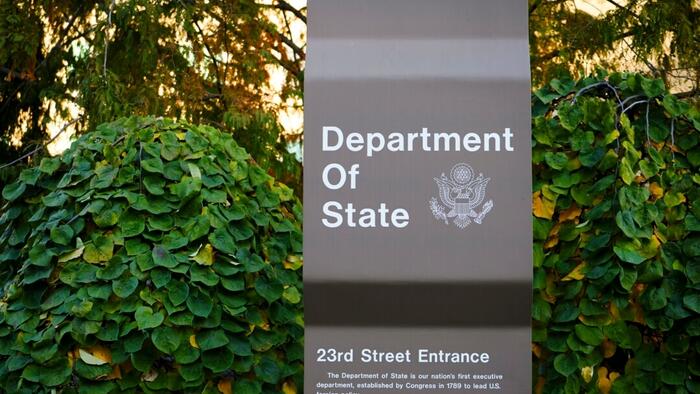


Authored by Frank Fang & Eva Fu via The Epoch Times,
China is preventing a U.S. Patent and Trademark Office employee from leaving the country, the U.S. State Department confirmed on July 21.
“We are tracking this case very closely and are engaged with Chinese officials to resolve the situation as quickly as possible,” the State Department told The Epoch Times in a statement. “The Department of State has no higher priority than the safety and security of American citizens.”
The employee, traveling “in a personal capacity,” was “made subject to an exit ban,” the agency said.
The statement confirmed a report by The Washington Post on July 20 that an American citizen working for the U.S. Commerce Department had traveled to China to visit family several months ago, citing unnamed sources familiar with the situation. The individual was barred from leaving China because he had failed to disclose his employment with the U.S. government on his visa application, the report said.
The U.S. Patent and Trademark Office is a federal agency under the Commerce Department.
The State Department currently maintains a “Level 2” travel advisory for China, urging travelers to “exercise increased caution” due to “arbitrary enforcement of local laws, including in relation to exit bans.”
The advisory explains that Chinese authorities may impose exit bans to compel the individual to cooperate with investigations, pressure family members of the targeted individual to return to China from abroad, influence the outcome of civil disputes in favor of Chinese citizens, and “gain bargaining leverage over foreign governments.”
Sen. Jim Risch (R-Idaho), chairman of the Senate Foreign Relations Committee, responded to the incident by reminding Americans that communist China doesn’t observe the rule of law.
“American companies and citizens traveling to China need to be aware of how the Chinese government uses arbitrary exit bans as a form of hostage diplomacy,” Risch wrote on X on July 21.
“For those seeking to do business with China, this is a reminder that rule of law does not exist there—and your safety is at risk.”
Speaking at a press briefing in Beijing on July 22, Chinese foreign ministry spokesperson Guo Jiakun declined to provide details about the U.S. government employee.
Rush Doshi, director of China Strategy Initiative at the Council on Foreign Relations, said the exit ban on the Commerce Department worker “is a deeply disappointing red flag for those traveling to China.”
“It chills vitally important people to-people ties,” Doshi wrote in an X post on July 21. “But the reality is that you too could be trapped—possibly for years—if Beijing decides it needs leverage in talks with the US.”
The Chinese Communist Party has previously been accused of engaging in hostage diplomacy, most notably in the case of two Canadians, Michael Spavor and Michael Kovrig, whom Beijing released in September 2021 after they had been detained for nearly three years.
In a report published in May 2023, Spain-based human rights group Safeguard Defenders estimated that “tens of thousands” of people were subject to exit bans in China. The figure did not include individuals prohibited from leaving the country due to their religion, such as Uyghurs and Tibetans, the rights group said.
On July 21, the Chinese regime announced that it had imposed an exit ban on Mao Chenyue, an Atlanta-based managing director at Wells Fargo, accusing the banker of being “involved in a criminal case.”
In response, Wells Fargo has suspended all travel to China.
Responding to an inquiry from The Epoch Times regarding Mao’s case, the State Department stated, “Due to privacy and other considerations, we have no further comment at this time.”
The timing of the two cases coincides with ongoing trade talks between Washington and Beijing. Last month, both sides reached an additional agreement following negotiations in Geneva and London.
